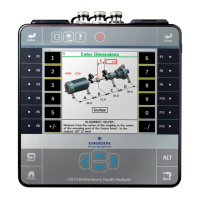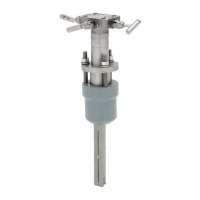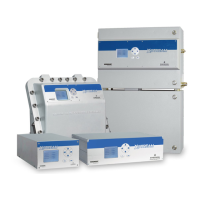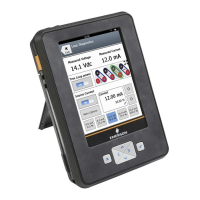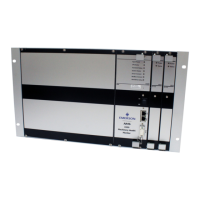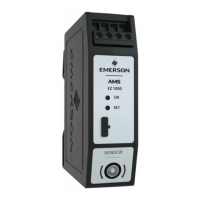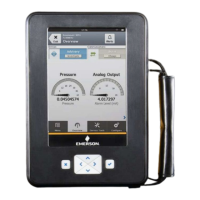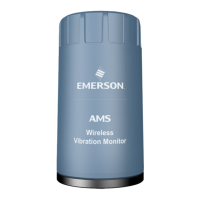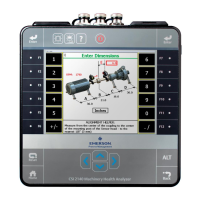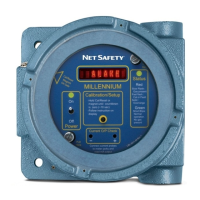Table 5-2: Default velocity levels in AMS Wireless Vibration Monitor
(continued)
Alert level Velocity (in RMS)
Maintenance 0.35 in/s
Failed 1.0 in/s
5.2 PeakVue
PeakVue
™
is a patented Emerson technology that is very useful for isolating high-
frequency phenomena associated with developing faults, especially in rolling-element
bearings.
The premise for PeakVue is that the high-frequency components are not readily detected
with more conventional measurements such as Overall Velocity, low-frequency energy
(LFE), or digital overall. This is because the low-frequency measurements either average
the energy or provide an energy summation over a relatively large frequency band, and
the relative amount of energy that is typically contributed by the high-frequency
components is quite small. As a result, even large "spikes" are difficult to detect with classic
techniques.
The difference in the vibration waveform and the associated measurement for overall
vibration versus PeakVue is shown in Figure 5-5 and Figure 5-6. The overall vibration is well
below the established advisory and maintenance alert levels indicating that the machine is
running well. In contrast, the PeakVue graph shows that the values have increased from
zero, and that they are already crossing the advisory alert level and approaching the
maintenance alert level. This early warning about impending defects is key to maintaining
good machine health.
The PeakVue algorithm isolates the peak energy of interest to provide early indications of
developing bearing faults such as inner and outer race defects, ball defects, and
lubrication problems. Any type of "impacting" fault, where metal is contacting metal, is
readily visible with PeakVue long before there is any significant increase in Overall
Vibration. PeakVue is especially useful for monitoring rolling-element bearings.
Figure 5-4 shows an example of a typical formula for calculating the advisory alert level for
PeakVue.
Figure 5-4: PeakVue advisory levels
Overall Velocity, PeakVue, and temperature User Guide
July 2020 MHM-97927-PBF
56 MHM-97927-PBF, DRAFT
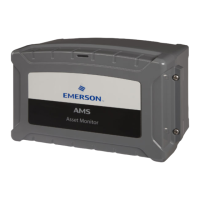
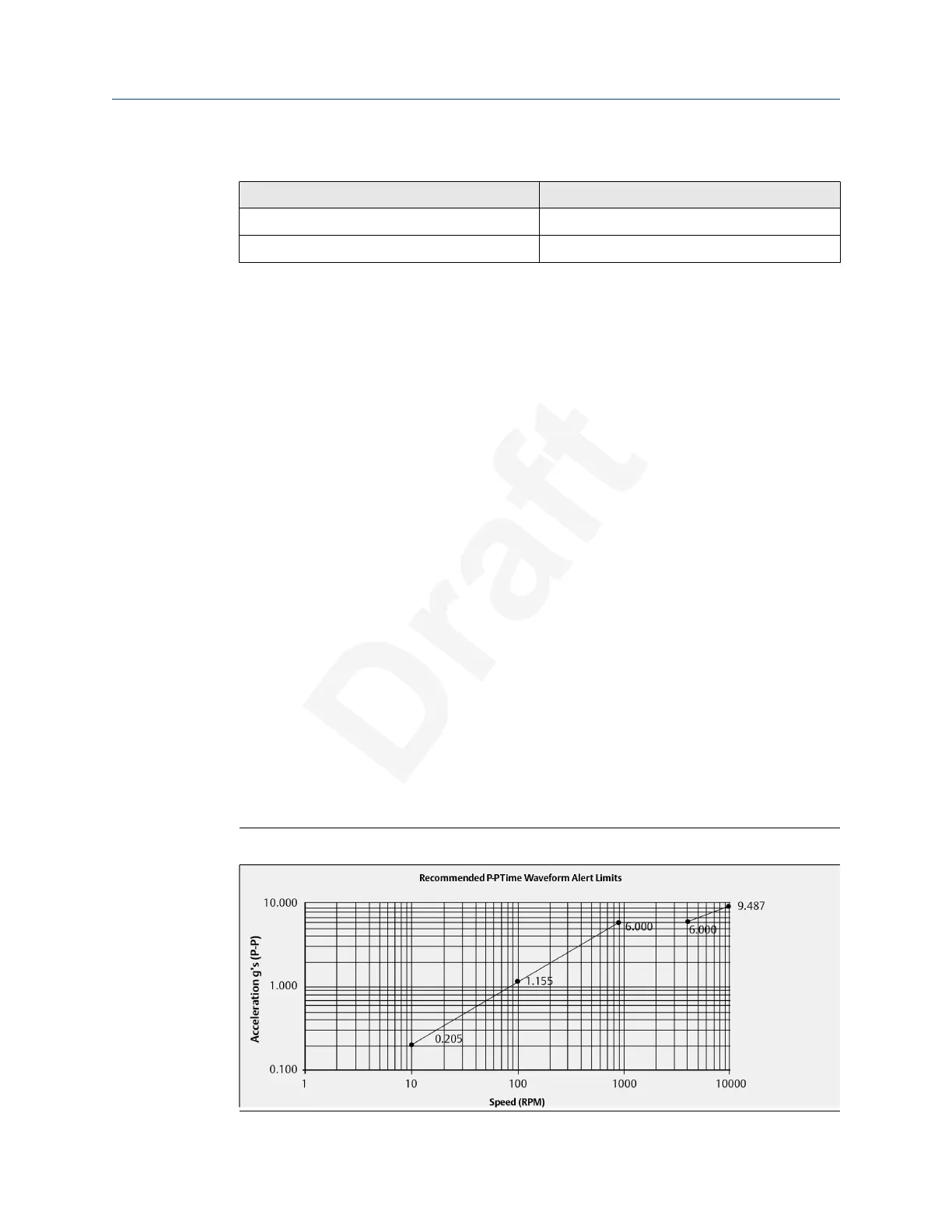